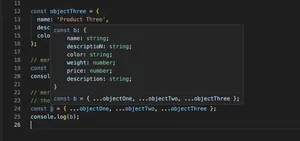Overview
TypeScript, a typed superset of JavaScript, adds additional syntax to JavaScript to support a tighter integration with your editor. Catching onload events in a window is essential for initializing web app components. This tutorial walks you through multiple methods for handling the onload event in TypeScript to ensure your web applications start smoothly.
Understanding Onload in TypeScript
Before diving into code examples, it’s important to understand what the onload event in HTML is. Simply put, the onload event in HTML fires when a particular page has finished loading all of its content, including images, scripts, and sub-frames. In TypeScript, we can handle this event to initialize components, gather resources, or perform any setup tasks for our application.
Let’s start with a basic example in vanilla JavaScript:
window.onload = function() {
console.log('The page is fully loaded.');
};
In TypeScript, we generally type our function to clarify our intent:
window.onload = (): void => {
console.log('The page is fully loaded.');
};
This ensures our onload function has no expected return value, aligning with the void return type in TypeScript.
Encapsulating Onload Logic
const initApp = (): void => {
console.log('Initial setup complete.');
};
window.onload = initApp;
Encapsulating your initialization logic within an external function like initApp helps keep your code organized and more maintainable.
Using Classes and Interfaces
TypeScript’s true power is unveiled when utilizing classes and interfaces. Handling the onload event in a class-based component further modularizes the code.
class AppLoader {
constructor() {
window.onload = this.onLoad;
}
public onLoad = (): void => {
console.log('AppLoader: Loaded');
};
}
const loader = new AppLoader();
This encapsulates the onload handling within the AppLoader class, providing a clear structure and potential for expansion.
Advanced Usage with TypeScript and DOM APIs
For a more complex scenario, let’s imagine handling the onload event within a single-page app, we might use the DOMContentLoaded event.
document.addEventListener('DOMContentLoaded', (event): void => {
console.log('DOM fully loaded and parsed');
});
We explicitly type the event parameter to demonstrate TypeScript’s integration with the DOM typing.
Implementing Error Handling
In a production scenario, it is critical to handle errors gracefully within your onload event.
window.onload = (): void => {
try {
initApp();
} catch (error) {
console.error('Onload failed: ', error);
}
};
Exception handling with try/catch blocks ensures that any errors during the initialization process are caught and can be properly addressed.
Using async/await with Onload Events
Modern JavaScript and TypeScript support asynchronous programming. Here’s how you can utilize it with the onload event:
window.onload = async (): Promise => {
await performAsyncSetup();
console.log('Async setup complete.');
};
Async/await can be leveraged to deal with asynchronous operations, ensuring that the onload event waits for the completion of these tasks.
Integrating with Frameworks and Libraries
If you’re using a framework such as Angular or React, the onload event handling might be abstracted by the framework’s lifecycle hooks or effects. However, understanding how to do it in vanilla TypeScript is key to troubleshooting or custom cases.
Conclusion
In this extensive guide, we’ve explored handling the HTML window onload event with TypeScript. We started with the basics and advanced to complex scenarios, demonstrating how TypeScript enhances JavaScript’s interactivity with the HTML document’s load event. By mastering these patterns, you can ensure your web applications are robust, maintainable, and ready to perform optimally upon page load.
